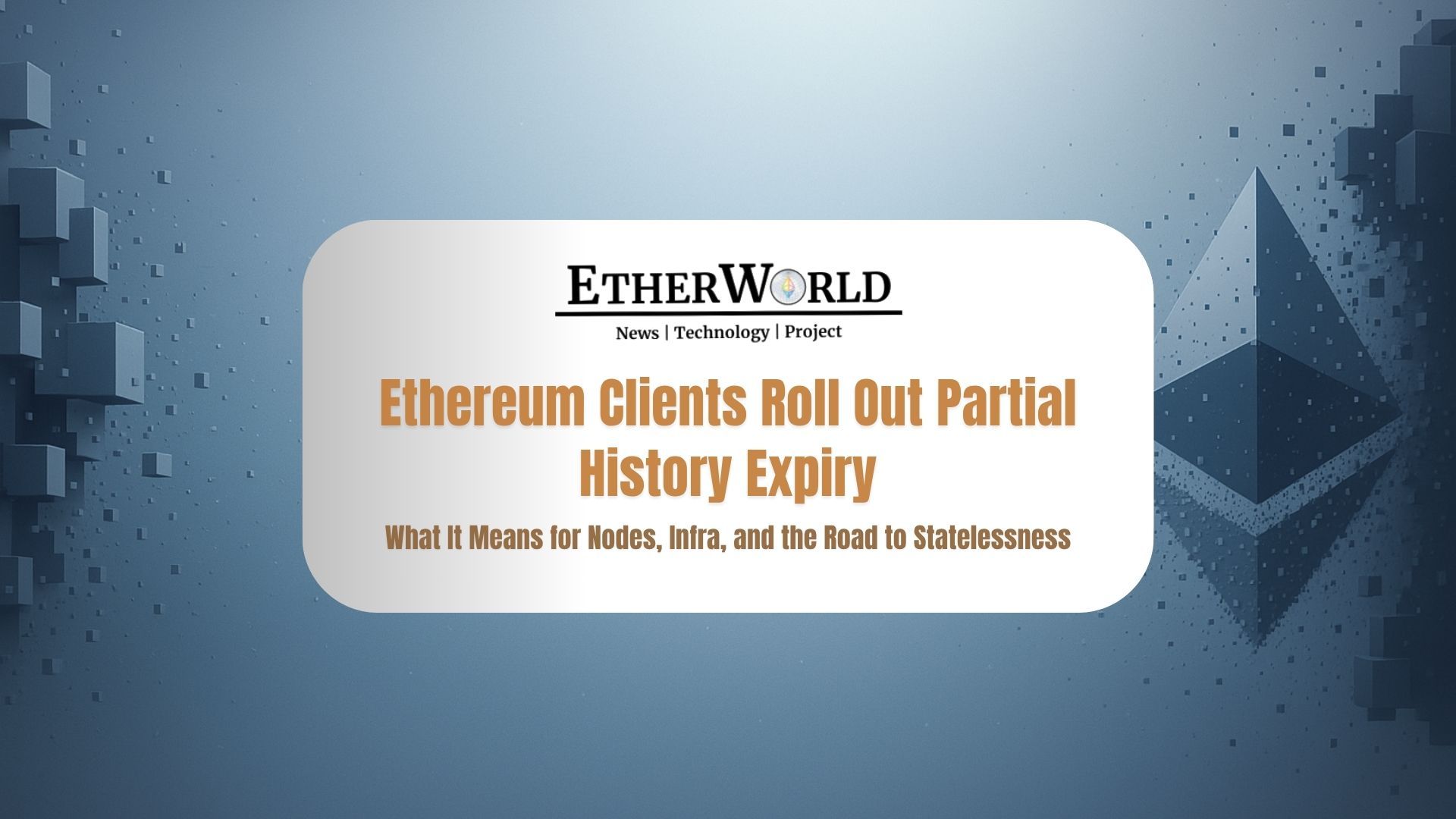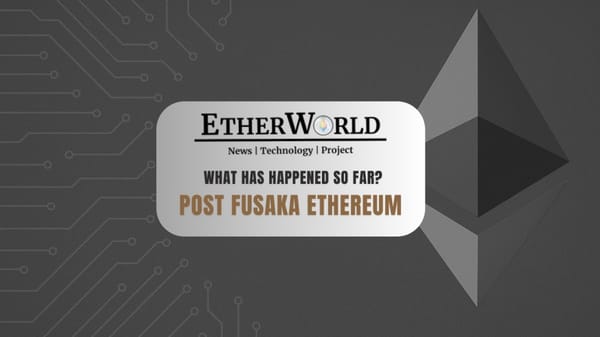Geth, Besu, and Nethermind have introduced a long awaited feature that lets Ethereum clients prune old history, reducing storage bloat and pushing the network closer to a stateless future
Ethereum is learning to forget, by design.
On July 8, the Ethereum Foundation announced that major Ethereum clients are introducing a new “Partial History Expiry” (PHE) mode. For the first time, Ethereum node operators can run their clients without storing all historical data, significantly reducing storage costs and syncing time.
This milestone shows years of research, getting a setp closer to achieve the vision of becoming a stateless, sustainable, and globally scalable protocol.
What Is Partial History Expiry?
Ethereum clients like Geth, Besu and Nethermind have traditionally stored all block and state history, going back to Genesis.
Partial History Expiry introduces an opt-in pruning mode: clients can now discard older block data after a certain period (e.g., keeping only the most recent 1 year of history).
This is not consensus-breaking. All nodes still verify blocks, but they can now drop history they no longer need, making it easier to run a full node without maintaining terabytes of archival data.
“If a client doesn’t use historical block data, why should it store it?”
— Ethereum Foundation R&D
This move has both practical and visionary consequences.
1. Infra Cost Reduction
Node operators, home stakers and infra providers will see:
- Drastically lower disk usage
- Faster sync times for new nodes
- Less strain on bandwidth and SSD wear
According to early testing:
- Geth nodes can prune several hundred GBs of data.
- Besu now enables historical expiry by default.
- Nethermind offers flexible config options to retain just N months of history.
2. Progress Toward Stateless Ethereum
Ethereum’s long-term vision includes Statelessness where clients no longer store any state at all. PHE is a stepping stone, helping devs test syncing, proofs, and light clients under real-world history constraints.
This change directly supports EIP-4444, which proposes that clients stop serving historical block data older than 1 year.
“This is Ethereum evolving. Partial History Expiry is the network preparing itself for Verkle Tries and statelessness”.
— EtherWorld Editorial
What About Tools and Apps That Rely on History?
Partial History Expiry doesn’t break Ethereum, but it does change assumptions for some apps.
Archive Data Consumers:
- The Graph, analytics dashboards, and some L2 rollups rely on historical block traces.
- These users will now need dedicated archive nodes or rely on third-party providers like Infura, Alchemy, or ArchiveNode.
The core idea: history doesn’t disappear but it becomes an opt-in service, not a burden on all nodes.
Breakdown by Client
| Client | Status | Default | Link |
|---|---|---|---|
| Geth | v1.14.0 adds PHE toggle | Off | Release |
| Besu | Enabled in 25.7.0 | On (for new SNAP nodes) | Release |
| Nethermind | Added months ago | Configurable | Release |
Most clients allow you to toggle this via CLI or config files. The Ethereum Foundation is encouraging infra teams to test the waters and report edge cases before defaults shift globally.
Verkle Tries Nods
Partial History Expiry is not the final step it’s part of Ethereum’s broader modular transformation. Coming next:
- Verkle Tries will replace Merkle Patricia Tries, enabling smaller witnesses and true stateless clients.
- EIP-4444 may formalize historical expiry in consensus rules.
- Sync committees and light clients will expand usability for non-full-node wallets.
It’s Ethereum’s way of saying: “You don’t need the past to validate the future”.
Want the Full Picture?
EtherWorld will follow up with:
- A guide to enabling PHE on Geth, Besu, and Nethermind
- A deeper look at EIP-4444
- Tools adapting to Ethereum’s lighter state
➡️ Follow us on X for Ethereum infra updates that matter.
Recommended Reads
- Lessons Learned from Fusaka Devnet 2
- Will Fusaka Be Ready in Time? Vitalik's 2025 Vision
- Glamsterdam: The Next Upgrade After Fusaka
- Do We Really Need High Gas Fees? Vitalik Thinks L1 Gas Limits Should Increase
- Nethermind's Surge has Officially Launched its Stage 2 Testnet (Hoodi)
Disclaimer: The information contained in this website is for general informational purposes only. The content provided on this website, including articles, blog posts, opinions, and analysis related to blockchain technology and cryptocurrencies, is not intended as financial or investment advice. The website and its content should not be relied upon for making financial decisions. Read full disclaimer and privacy Policy.
For Press Releases, project updates and guest posts publishing with us, email to contact@etherworld.co.
Subscribe to EtherWorld YouTube channel for ELI5 content.
Share if you like the content. Donate at avarch.eth
You've something to share with the blockchain community, join us on Discord!








